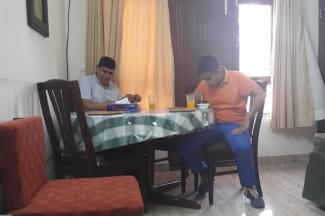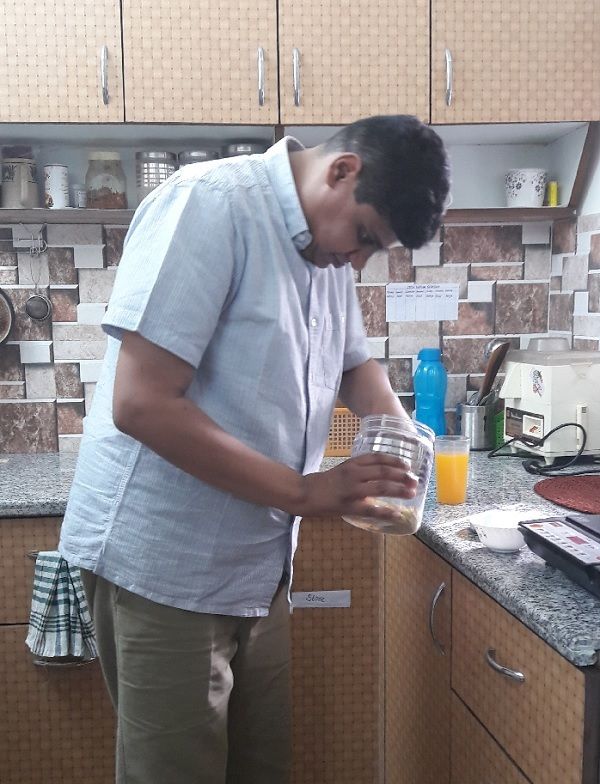
The Independent Living Program, an offshoot of Arunima, one of India’s first assisted living centres for teenagers and adults with autism, provides services and support to people with higher functioning autism to independence and dignity. In conversation with Aparna Das, founder director of Arunima.
A few years ago, you set up Arunima, one of India’s first assisted living centres for teenagers and adults with autism. And now recently, you extended its vision to launch a new initiative, The Independent Living Program. Could you tell us a little about it?
The Independent Living Program is a very exciting initiative indeed. We found that some of our residents had lower support needs, and also the ability to develop good life skills. Continuing to live in a group setting was restrictive to their development, and not fair on the others who had higher support needs. So we decided to “take the plunge” and move the more independent individuals into two bedroom flats, along with a staff member. These young men and women live fairly independently, go out to work, engage in activities of personal development ( like fitness/ music) look after their own flats, do their own shopping and a lot of their cooking – like many other people their age.

Who is eligible to join the Independent Living Program?
In our current setup, anyone who can manage his or her activities of daily living independently, and is interested and able to go out into the community with minimal support.
What is the profile of the current residents? How do you equip these youngsters with skills that will help them get a job?
The current residents enrolled in the Independent Living Program, all in their late 20s and early 30s, have fairly good expressive and receptive language. Everything in their environment works towards equipping them to be successful in the workplace as well. Doing a task from start to finish, working quietly, staying on task, only having conversation related to the task – these are some of the aspects incorporated into their daily routine. Apart from this, very specific training related to the job itself, is required before someone joins the workplace. So for example, two of our young men, who work at a restaurant, also attended a 45 day hospitality course before they applied for their job.
How does one create an autism-friendly workplace?
Awareness is the key. So, while we work hard to prepare our residents for the work place, preparing the workplace for them is important too. Most importantly, the job must be very specific, and the same each time. The employer must be made aware that the expectations they have of their employee have to be structured, not casual and constantly changing.
What was the biggest challenge for you in setting up the Independent Living Program?
The most challenging aspect is finding the staff who will be appropriately supportive of our residents. This means, most importantly, knowing exactly when to step back, not over instructing, and always being aware that independence is our foremost goal. We are fortunate to have some staff who are constantly aware of the need to think each action through, but it continues to be a work in progress.
What kind of self-advocacy and independent living skills is imparted at the Program?
Making one’s own choices, be they in the colour of the curtains, to the weekly menu and learning that these choices will be respected. However, this is not isolated to the Independent Living Program only. All our service users are taught about the power of independent choices. That does not mean that one gets to do whatever one wants. But decision making is informed, and discussion based.
Why are we not able to build more provisions or inclusion in employment, schools and universities for people on the autism spectrum disorder?
Why are women targets of sexual abuse? Why are minorities discriminated against? It is all the same basically. Unless people change their mindset and accept the fact that each of us, as members of the human race has an equal right for opportunities anywhere, we will keep struggling with these issues.
Lastly, how do you see the campaign or struggle for the future of autism advocacy in India?
We are very hopeful. There is a strong movement for awareness raising and equal opportunities and one celebrates tiny victories that are achieved through groups of people working together. Good things will happen in the future.
Related Reading:
Being Independent is Absolutely Amazing
Kids with Autism will grown into Adults with Autism
(Aparna Das founded Project Arunima, one of India’s first assisted living centres for adults with autism. Located on the foothills of Himalayas in Dehradun, Arunima’s vision is to provide a life of dignity and maximum independence to people on the Autism Spectrum.)






